
Opinions
21:33, 18-Dec-2018
Opinion: What to expect from China's Central Economic Work Conference
Updated
20:51, 21-Dec-2018
CGTN's Wang Xinyan
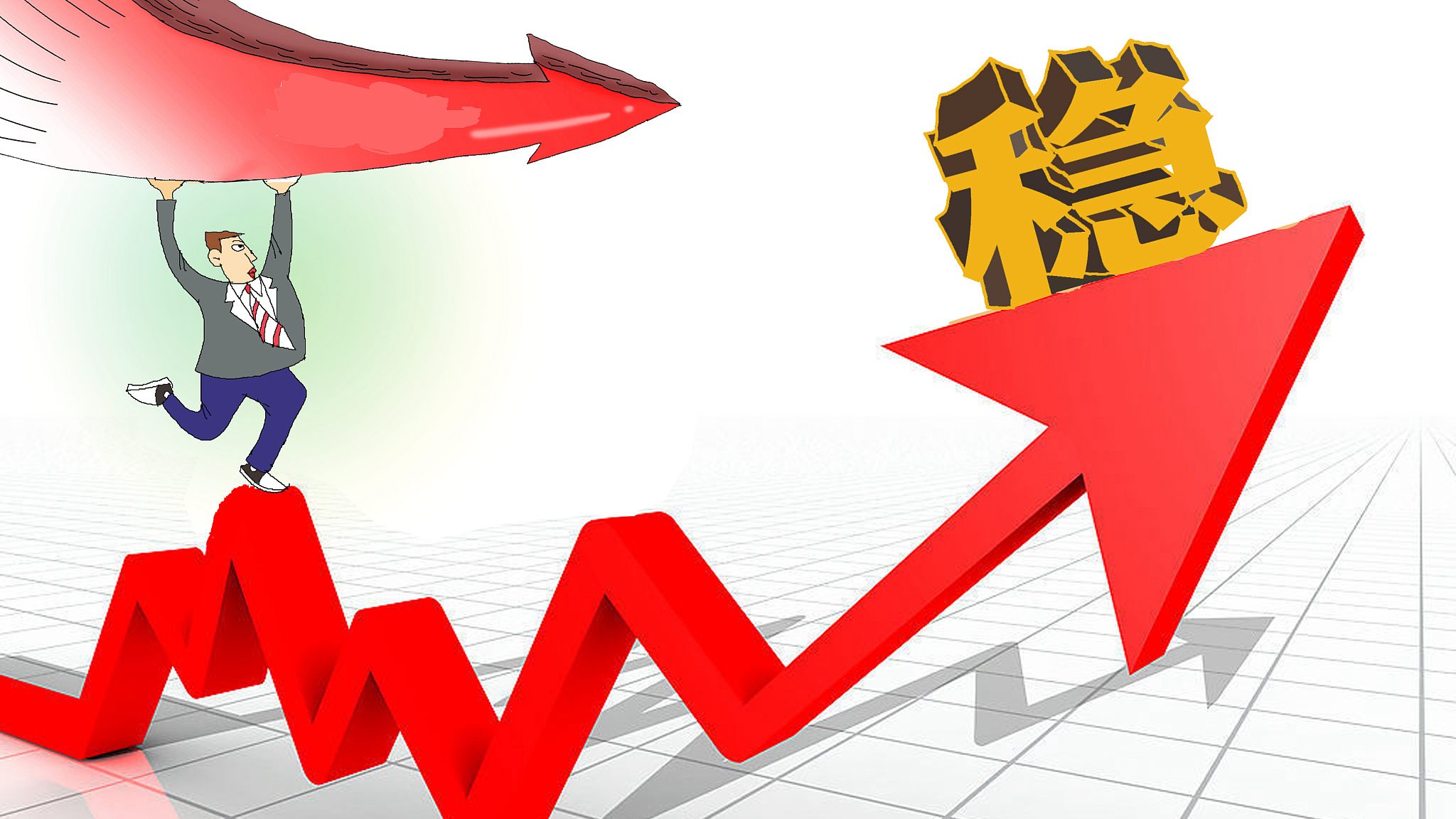
Editor's note: The article is based on an interview with Chen Jiahe, chief strategist at China Securities. The article reflects the expert's opinion, and not necessarily the views of CGTN.
The annual Central Economic Work Conference (CEWC), a key meeting that will set the national agenda for the Chinese economy for the year ahead is going to be held soon. Each year, the CEWC is considered to integral to understanding the status of the Chinese economy and the economic decisions of the next year.
This year is no exception and has attracted more attention, given the ups and downs in bilateral relations with the United States since Donald Trump triggered the trade war.
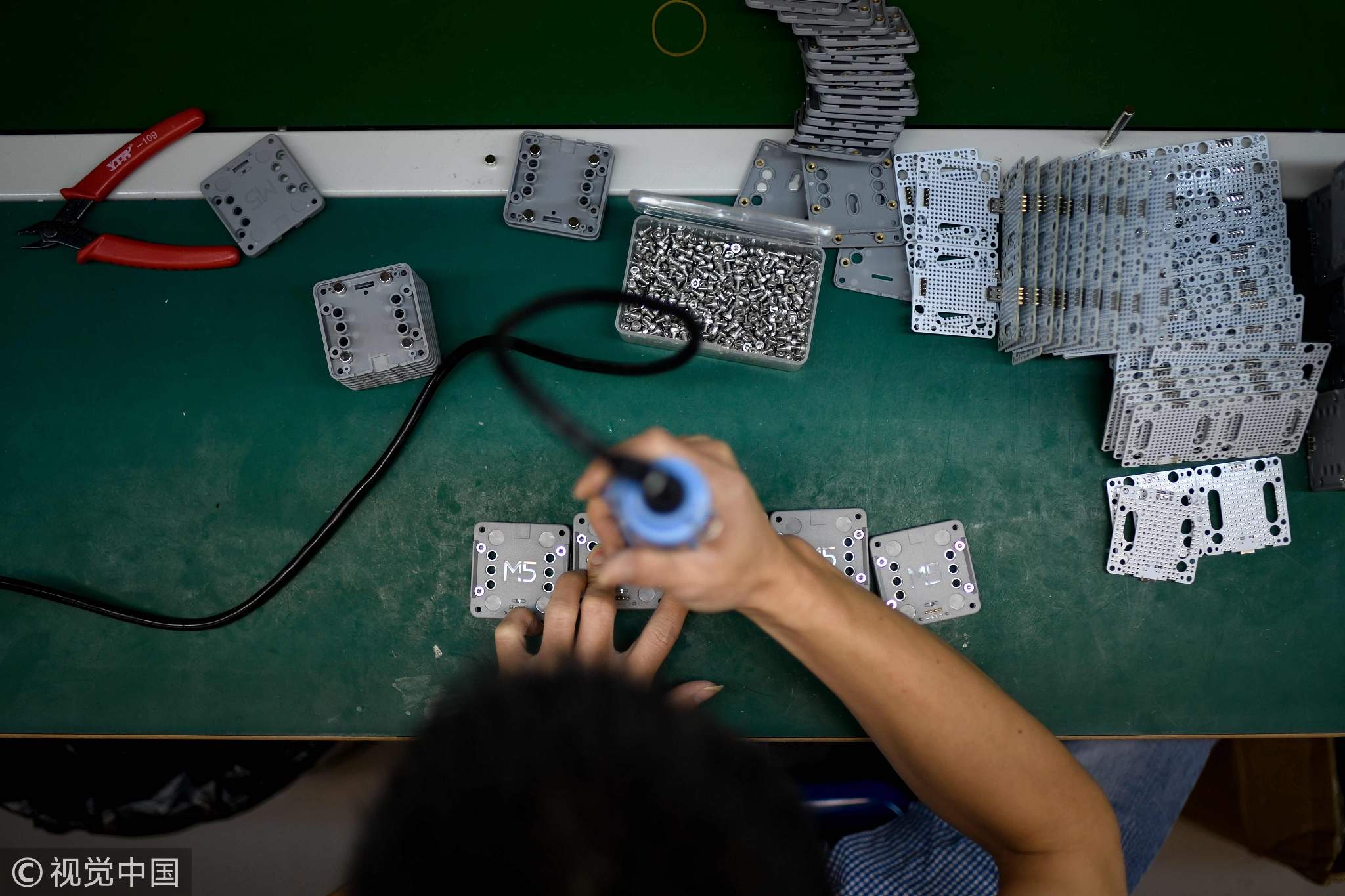
A company producing robots in Shenzhen, south China's Guangdong Province, November 9, 2018. /VCG Photo
A company producing robots in Shenzhen, south China's Guangdong Province, November 9, 2018. /VCG Photo
"The central government will likely choose a more proactive fiscal policy, and steady growth can be expected in the future," said Chen Jiahe, chief strategist at China Securities.
Chen's views are echoed by Huang Jianhui, director of the research institute of China Minsheng Bank, in speaking with Asia Times. Huang predicts that the upcoming meeting will set the tone between “stabilizing growth, structural reform, and risk prevention.” The government will continue to stimulate demands to prop up growth while deepening supply-side reform, Huang said.
At the end of this July, the meeting of the Political Bureau of the Central Committee of the Communist Party of China (CPC) judged China's economic situation and put forward the "six stable" coping strategies of stabilizing employment, finance, foreign trade, and investment, and expectations.
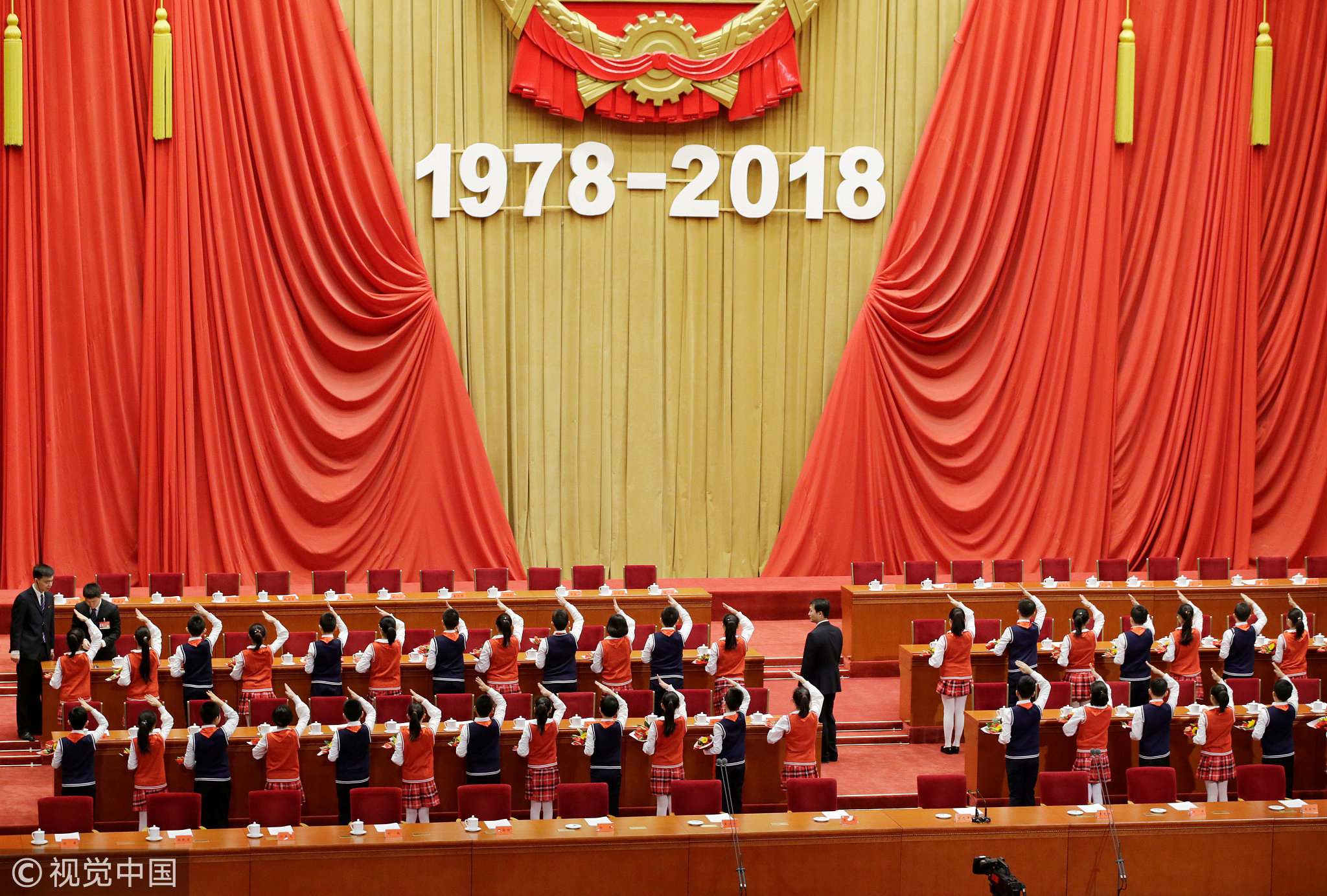
Students prepare for an event marking the 40th anniversary of China's reform and opening-up at the Great Hall of the People in Beijing, China, December 18, 2018. /VCG Photo
Students prepare for an event marking the 40th anniversary of China's reform and opening-up at the Great Hall of the People in Beijing, China, December 18, 2018. /VCG Photo
Shen Jianguang, chief economist from Jingdong Digital Technology wrote in an article published on Economic Daily that three reasons could explain why the central government will continue a "neutral loose" monetary policy.
First, the domestic economic downturn and the difficulty in the operation of private enterprises require support from a loose monetary policy environment.
Second, the global economy has seen a downward trend, the Fed's attitude has become more and more dovish, and the U.S. dollar rate hike cycle has slowed down.
Third, inflationary pressures have declined. In October, CPI and PPI have shown a downward trend. It is expected that the CPI target will be set at three percent next year, and the actual inflation level may be reduced to two percent, which will reserve space for monetary policy. At the same time, the RRR cuts and interest rate cuts are all in the policy toolbox.
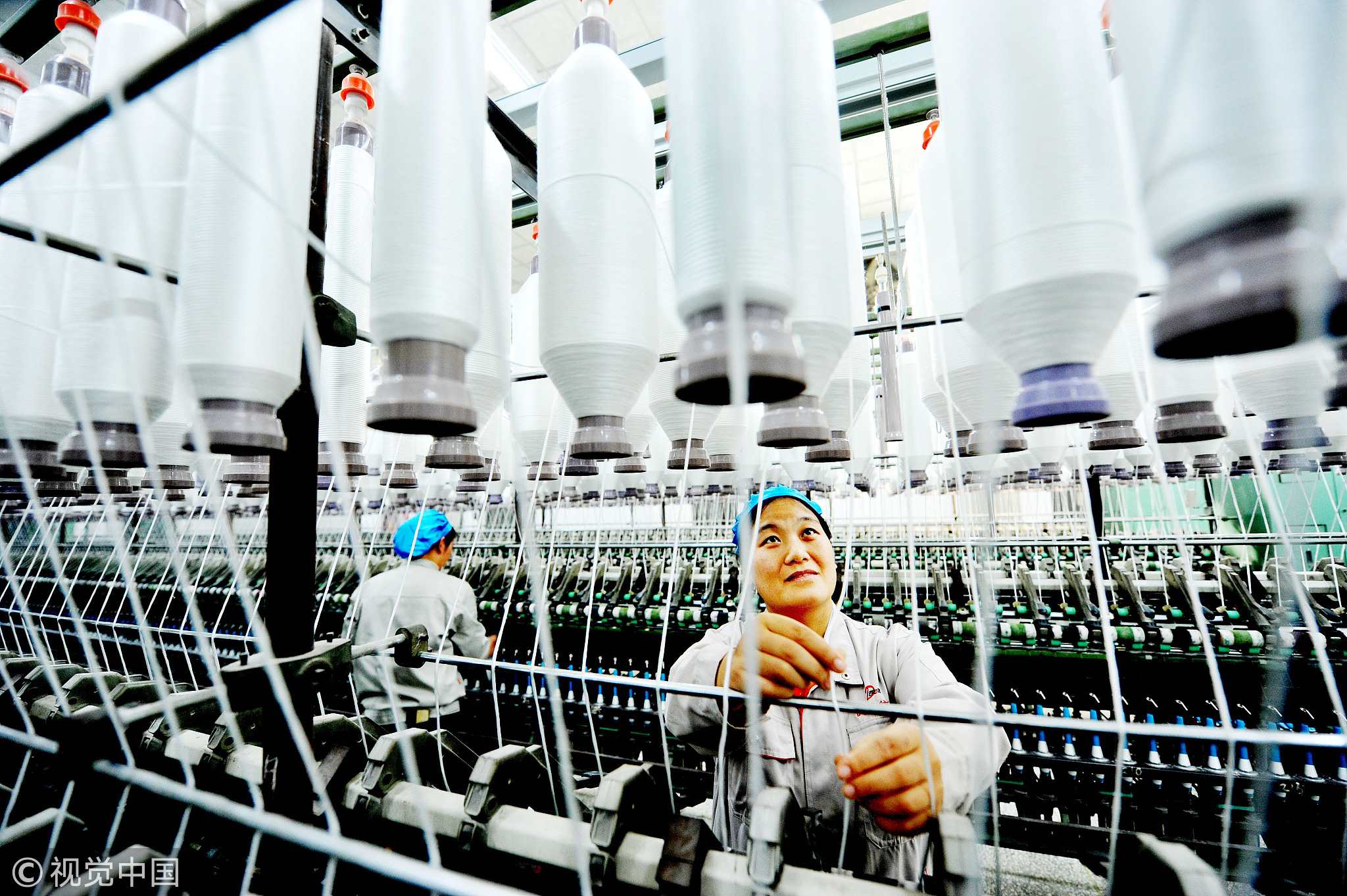
Textile workers in Yushan County, Jiangxi Province, are working for their textile exports to Europe and the United States, December 17, 2018. /VCG Photo
Textile workers in Yushan County, Jiangxi Province, are working for their textile exports to Europe and the United States, December 17, 2018. /VCG Photo
In recent years, with the transformation of China's economic structure, China's economic growth has shown a downward trend as a whole. The GDP target also fell accordingly, from eight percent in 2011 to 6.5 percent in 2017. Looking forward to next year, it is expected that the CEWC will still face the reality that the downward pressure on the economy has increased. This has worried many, concerned that the Chinese economy is worsening.
However, in Chen's opinion, it is quite a normal phenomenon to have such a downward trend and it doesn't necessarily mean there will be a negative effect on the economy.
For the past years, China's GDP has grown at a rapid speed, and there's no economy that can sustain that level. The downward revision of GDP growth will make room for future structural reforms and respond to external risks.
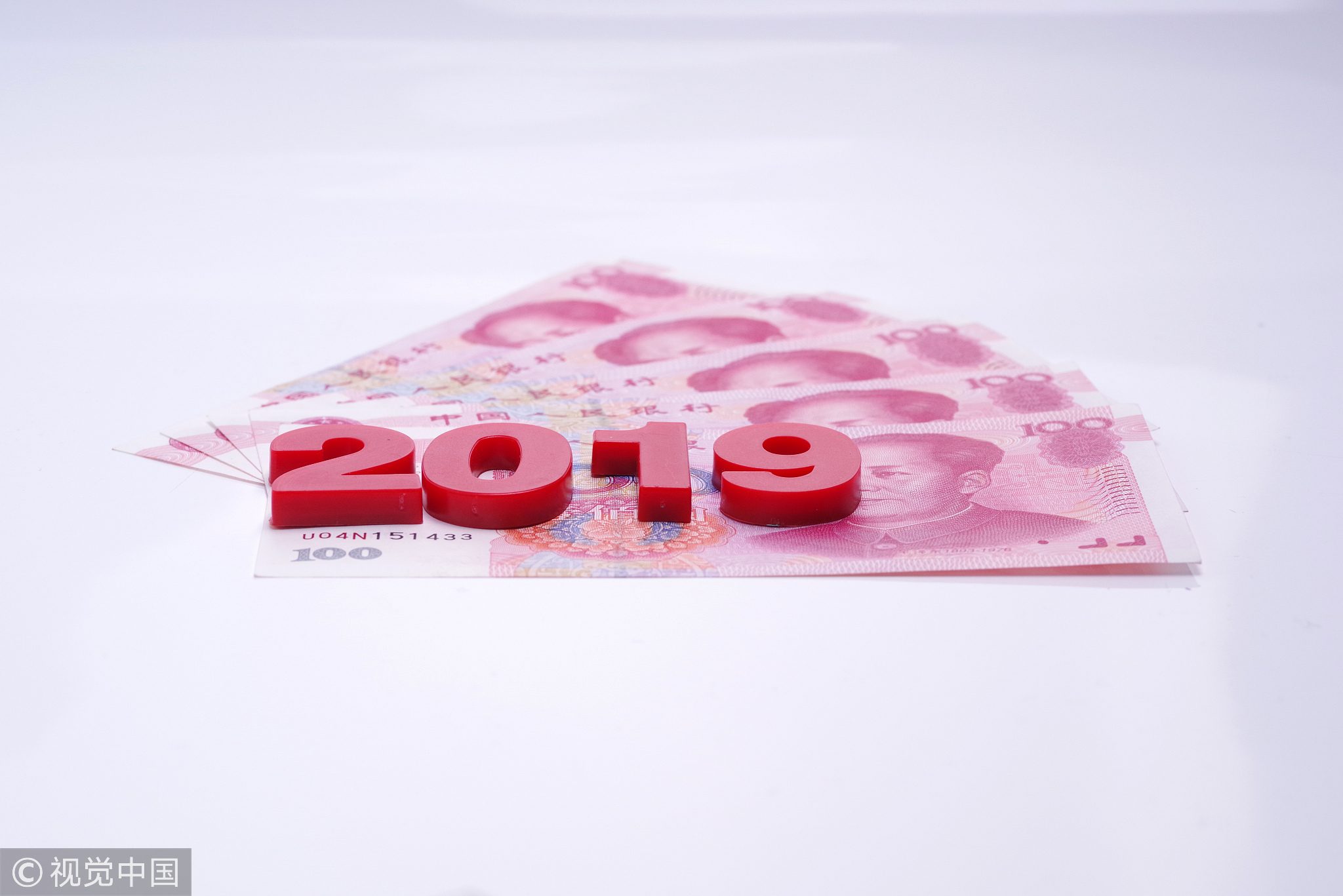
VCG Photo
VCG Photo
This year marks the 40th anniversary of China's economic reform and opening-up. There is no doubt that this year's CEWC will continue to emphasize the acceleration of economic system reform and the promotion of all-round opening up on the basis of steady progress.
There may be growth drivers in the process of further opening-up, and there is still much room for reform, such as state-owned enterprise reform, financial reform, and administrative system reform.
Just as President Xi Jinping emphasized in his speech at the conference celebrating the 40th anniversary of China's reform and opening-up on Tuesday, "as the reform and opening-up in the past four decades has shown, openness brings progress while seclusion leads to backwardness. China can't develop itself isolation of the world, and the world needs China for global prosperity."
(If you want to contribute and have specific expertise, please contact us at opinions@cgtn.com.)

SITEMAP
Copyright © 2018 CGTN. Beijing ICP prepared NO.16065310-3
Copyright © 2018 CGTN. Beijing ICP prepared NO.16065310-3